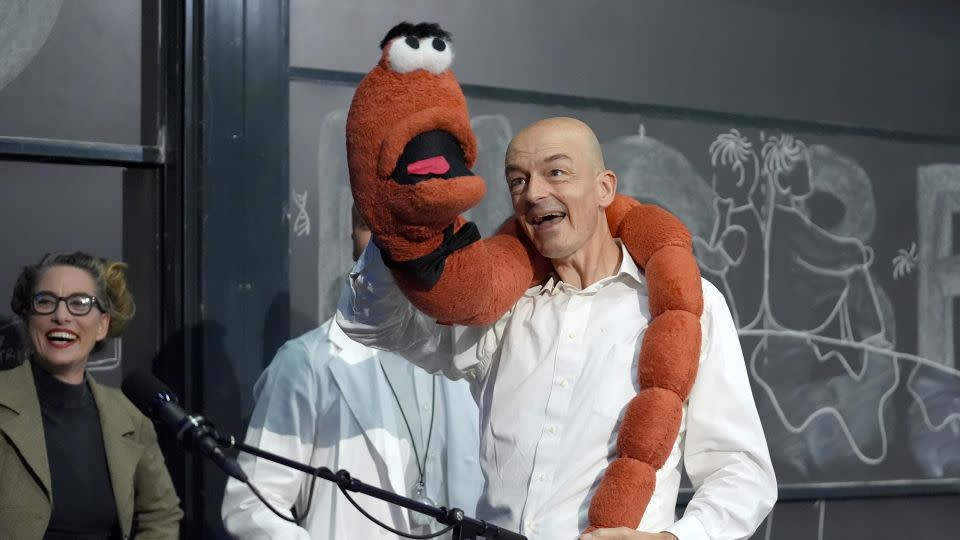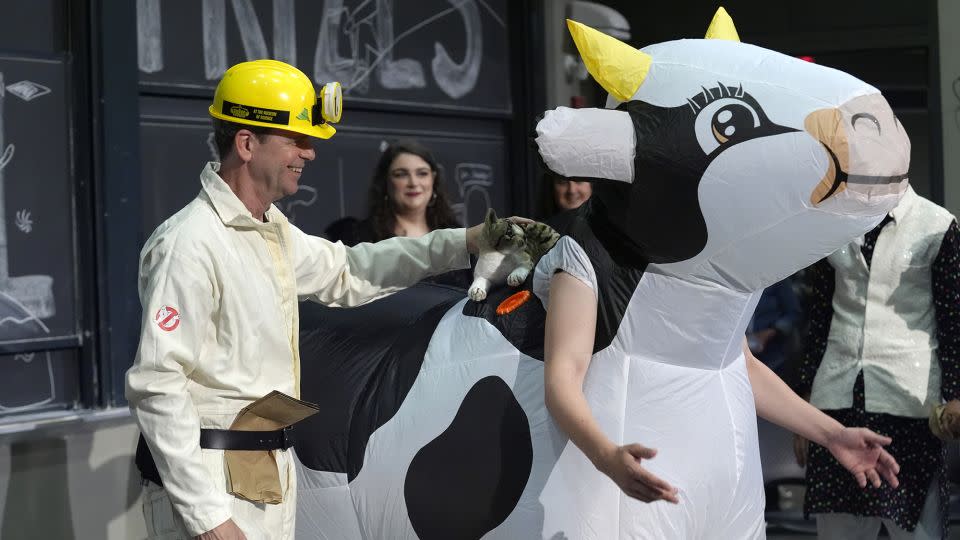The world still holds many unanswered questions. But thanks to the efforts of the research teams awarded the IG Nobel Prize on Thursday, some of these questions – which you might not even have thought existed – now have answers.
We now know that many mammals can breathe through their anuses, that there isn’t an equal probability that a coin will land on head or tails, that some real plants somehow imitate the shapes of neighboring fake plastic plants, that fake medicine which causes painful side-effects can be more effective than fake medicine without side-effects, and that many of the people famous for reaching lofty old ages lived in places that had bad record-keeping.
The awards – which have no affiliation to the Nobel Prizes – aim to “celebrate the unusual, honor the imaginative – and spur people’s interest in science, medicine, and technology” by making “people laugh, then think.”
In a two-hour ceremony as quirky as the scientific achievements it was celebrating, audience members were welcomed to their seats by accordion music, before a safety briefing warned them not to “sit on anyone, unless you are a child,” not to “feed, chase or eat ducks” and to throw their paper airplane safely. There were two “paper airplane deluges” during the ceremony in which the audience attempted to throw their creations – safely – at a target in the middle of the stage.

Among those collecting their prizes was a Japanese research team led by Ryo Okabe and Takanori Takebe who discovered that mammals can breathe through their anuses. They say in their paper that this potentially offers an alternative way of getting oxygen into critically ill patients if ventilator and artificial lung supplies run low, like they did during the Covid-19 pandemic.
American psychologist B.F Skinner was posthumously awarded the peace prize for his work attempting to use pigeons to guide the flight path of missiles, while a European-wide research team was awarded the probability prize for conducting 350,757 experiments to demonstrate that a coin tends to land on the same side it started when it is flipped.
Jacob White and Felipe Yamashita won the botany prize for finding evidence that some real plants attempt to mimic the leaves of nearby fake plants, James C. Liao won the physics prize for demonstrating and explaining how a dead trout swims, and a French-Chilean research team won the anatomy prize for studying whether hair swirls in the same direction on the heads of people in the northern hemisphere as in the southern hemisphere.


Live demonstrations to illustrate the experiments involved accompanied some of the prize-giving, including when Fordyce Ely and William E. Petersen were posthumously awarded the biology prize for exploding a paper bag next to a cat that’s standing on the back of a cow to explore the reasons for cows spewing their milk.
A Dutch-French research team also produced a live demonstration when they collected the chemistry prize to explain how they used chromotagraphy to separate drunk and sober worms.
Actual Nobel laureates presented the prizes to the ten IG Nobel winners who all won a now obsolete Zimbabwean ten trillion-dollar bill, available for $22 on eBay, and a “transparent box” containing items relating to “Murphy’s Law” – the theme of this year’s ceremony and the principle that anything that can go wrong will go wrong. On that note, some of the items in the box were missing, presenters said, and the box itself was “almost impossible to open.”
For more CNN news and newsletters create an account at CNN.com
Source Agencies



